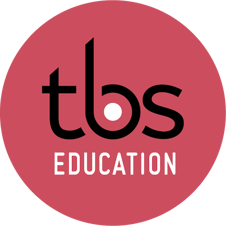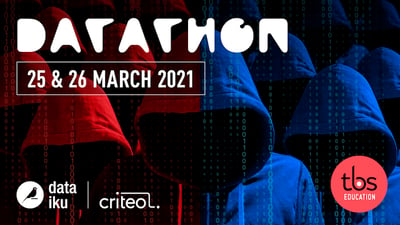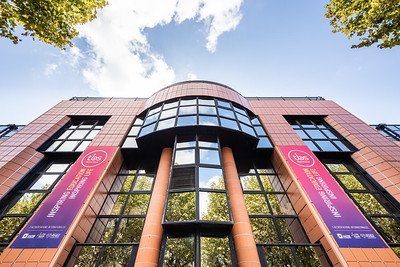Not many educational institutions were working with Dataiku in 2015, as Dataiku was heavily focused on scaling (we had 90 team members, whereas today we have over 600!) and democratizing data science at enterprises across the globe. In fact, we didn’t formally announce the Dataiku Academic Program until 2017 as a no-charge licensing, support, and learning resource for teachers, researchers, and students in the data science and analytics space.

Toulouse Business School (TBS), however, has worked with Dataiku since before we began officially partnering with academic institutions. Founded in 1903, the school has over 46,000 alumni around the world and has a strong regional footprint in a city with a notable industrial history (it’s home to Airbus). Kevin Carillo, the Academic Coordinator of the Master of Science Big Data, Marketing & Management at TBS, which includes big data, digital intelligence, and marketing analytics, has done a lot with Dataiku over the years, so follow along to hear how he fits Dataiku into his classes and how the partnership has evolved over time.
Dataiku’s Role Over the Years
As a business school training future decision makers and managers, TBS has — in recent years — become especially keen on fostering data science-related skills both horizontally and vertically. The former because managers need analytics skills as data science impacts businesses’ decision making processes, but also vertically because of the genesis of new types of jobs that all tie back to data (data scientists, engineers, analysts, etc.).
Kevin’s vision for his students was to learn what big data is and how it can be used and started looking for a data science platform that best fit his needs. Enter: Dataiku. Jeremy Greze, Product Manager at Dataiku, presented the platform and its capabilities to a class at TBS with a tutorial, and Kevin knew he wanted to learn more, so he went through additional tutorials and started teaching himself and running projects.
At first, the format was that Dataiku was used during a few weeks of a general business degree, a specialization with the name “Big Data and Marketing” where students learned more about the theory behind big data (i.e., What is a prediction? What are the key use cases for data science, ML, and AI in marketing?). Then, the students worked on a project in Dataiku and presented their findings in front of a panel.
Today, TBS has two Master’s of Science programs on analytics and AI and a third that is more internal to TBS students. All three programs (between 100-150 students) use Dataiku for their analytics and AI projects. Specifically, Dataiku is used in the “Level 1” machine learning course to illustrate the phases and steps of the machine learning process and in the “Level 2” machine learning course to dig into more advanced machine learning models, monitoring in production, and tracking results.
Further, Dataiku is used in the annual hackathon Kevin organizes for his students, which has featured companies such as Airbus and Skyscanner (to predict airfare prices), APEM (to predict customer request proposals), and Criteo (to predict customer expenses). He also has former students who want to come back and contribute, whether through teaching and also using Dataiku or helping other students get jobs.

It wasn’t just Dataiku’s role that grew over the years, though. As data science, machine learning, and AI have exploded in recent years, TBS has made analytics and AI a strategic pillar of the school, illustrating their commitment to instilling these skills into their students now and in the future.
The strength of Dataiku is it covers the entire analytics process. To be able to go from connecting, cleaning, and enriching data to running models in one place is immensely valuable. Plus, it makes the students more marketable.” - Kevin Carillo
There’s Something for Everyone
According to Kevin, the most compelling feature of Dataiku wasn’t something that was added in recent years, but rather one that has been key to Dataiku’s value proposition since its inception — the ability to cater to different user profiles, from super data experts to beginners. In the higher education ecosystem, this is critical as the job market wants hybrid profiles, meaning students that have both business and technical skills. Students who have a strong business background should still be able to run basic models and those who want to do more technical work can write code, build models, and push them into production while still knowing how to answer business questions and create value for the company.
The idea of the hybrid profile is the soul of TBS and Dataiku helps us cater to both business and technical expertise.” - Kevin Carillo
We know that the silos between technical and business people are very real (and can be immensely problematic without the right people, processes, and technology to eliminate them), so TBS is focused on equipping their students with the hybrid expertise. In addition to introducing students to best-in-class solutions like Dataiku, they are helping them gain trust in data-driven insights by helping them understand the correlation between the raw data and the business problem. The academic staff for data science and analytics at TBS is growing and are excited to continue the positive trajectory not only for data and analytics at large, but for the partnership with Dataiku.





